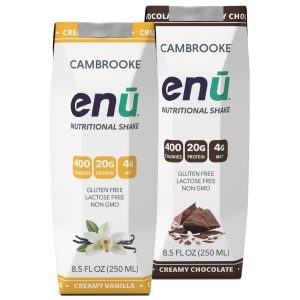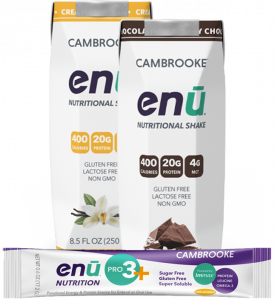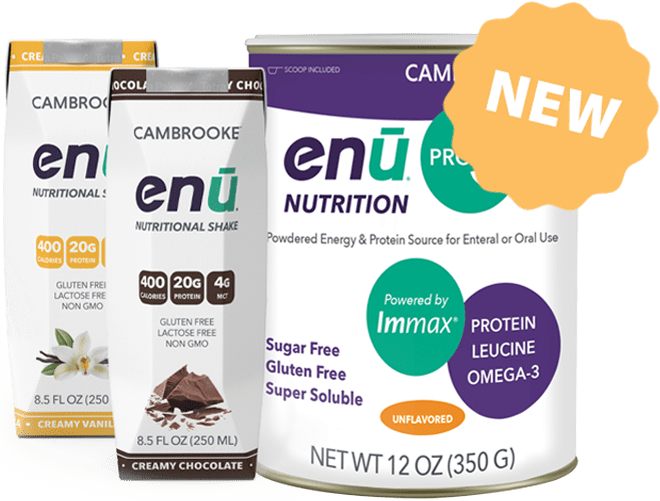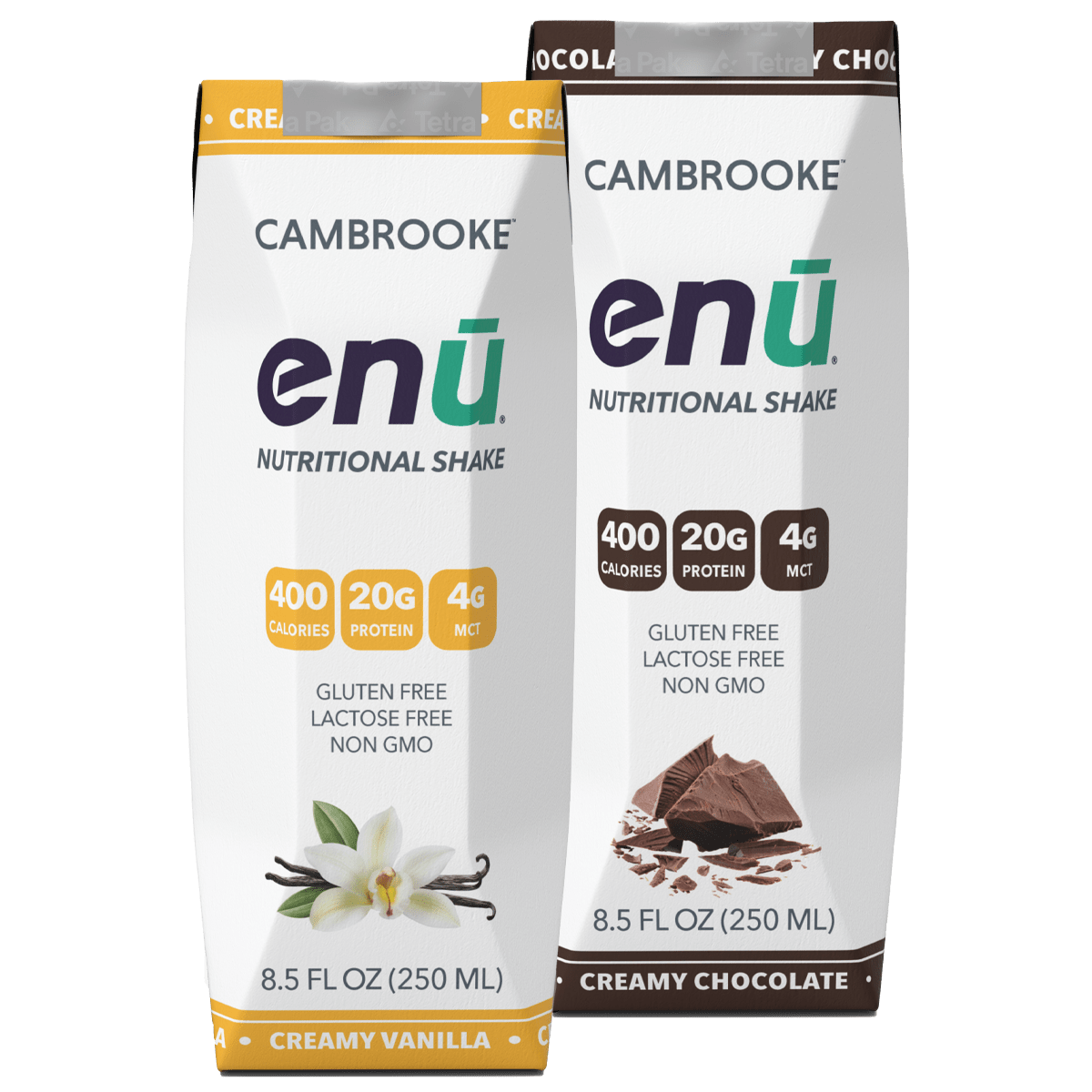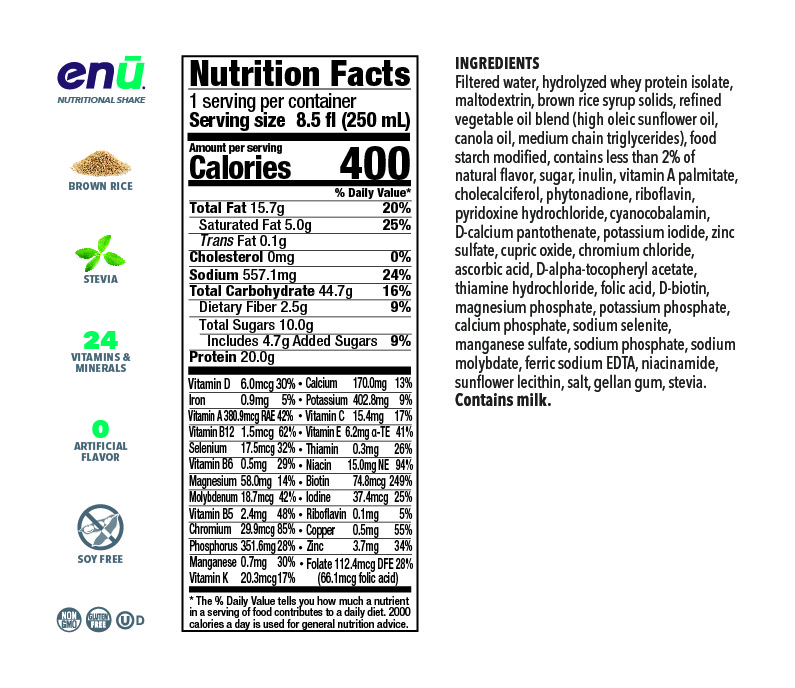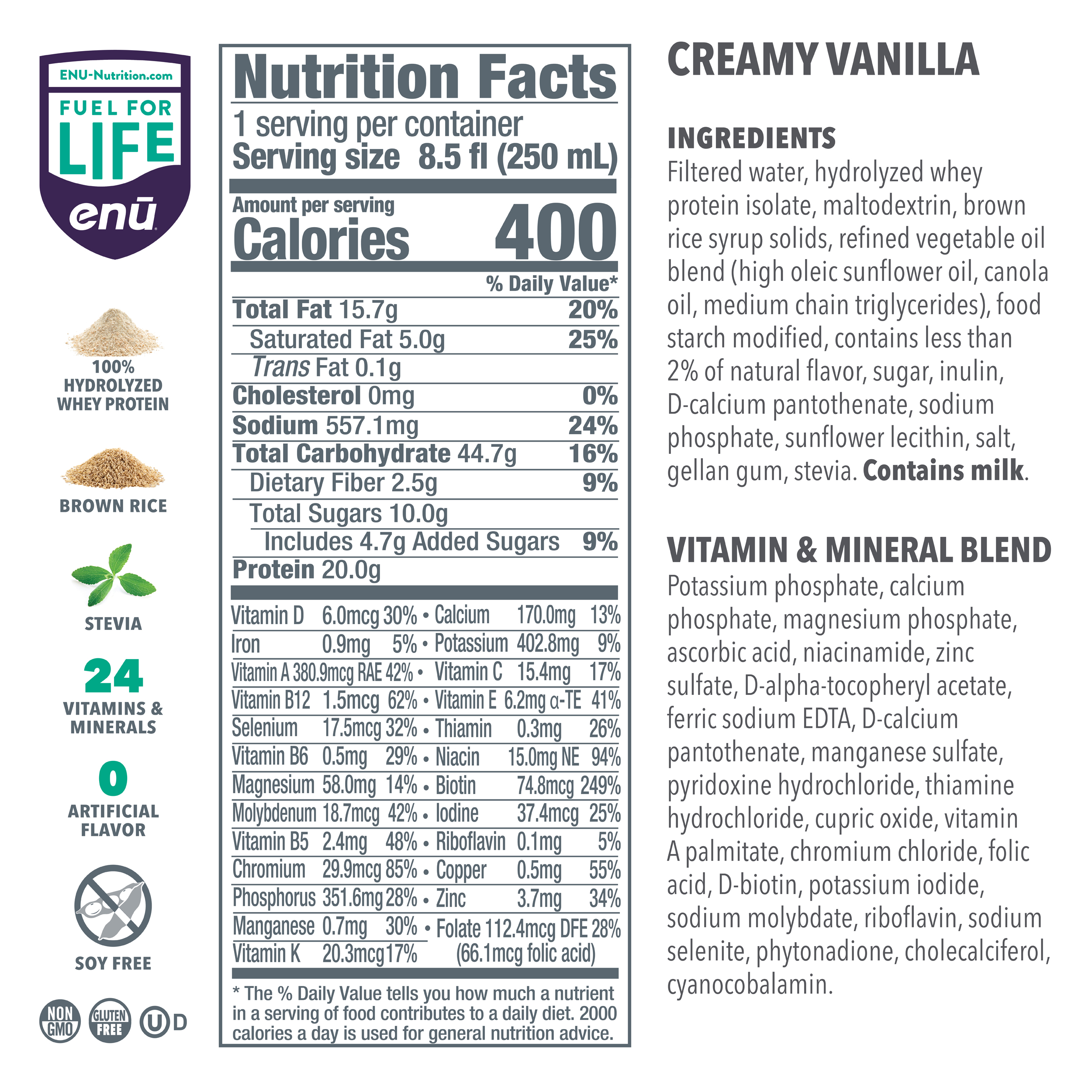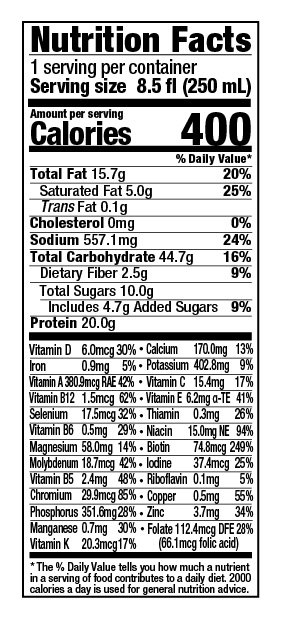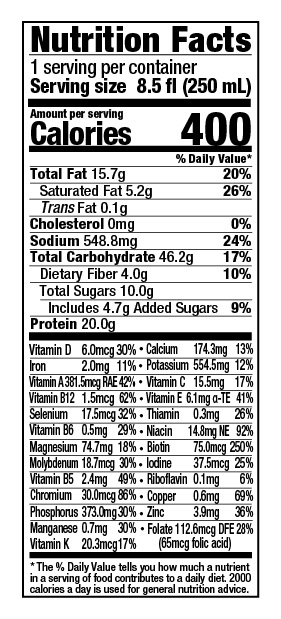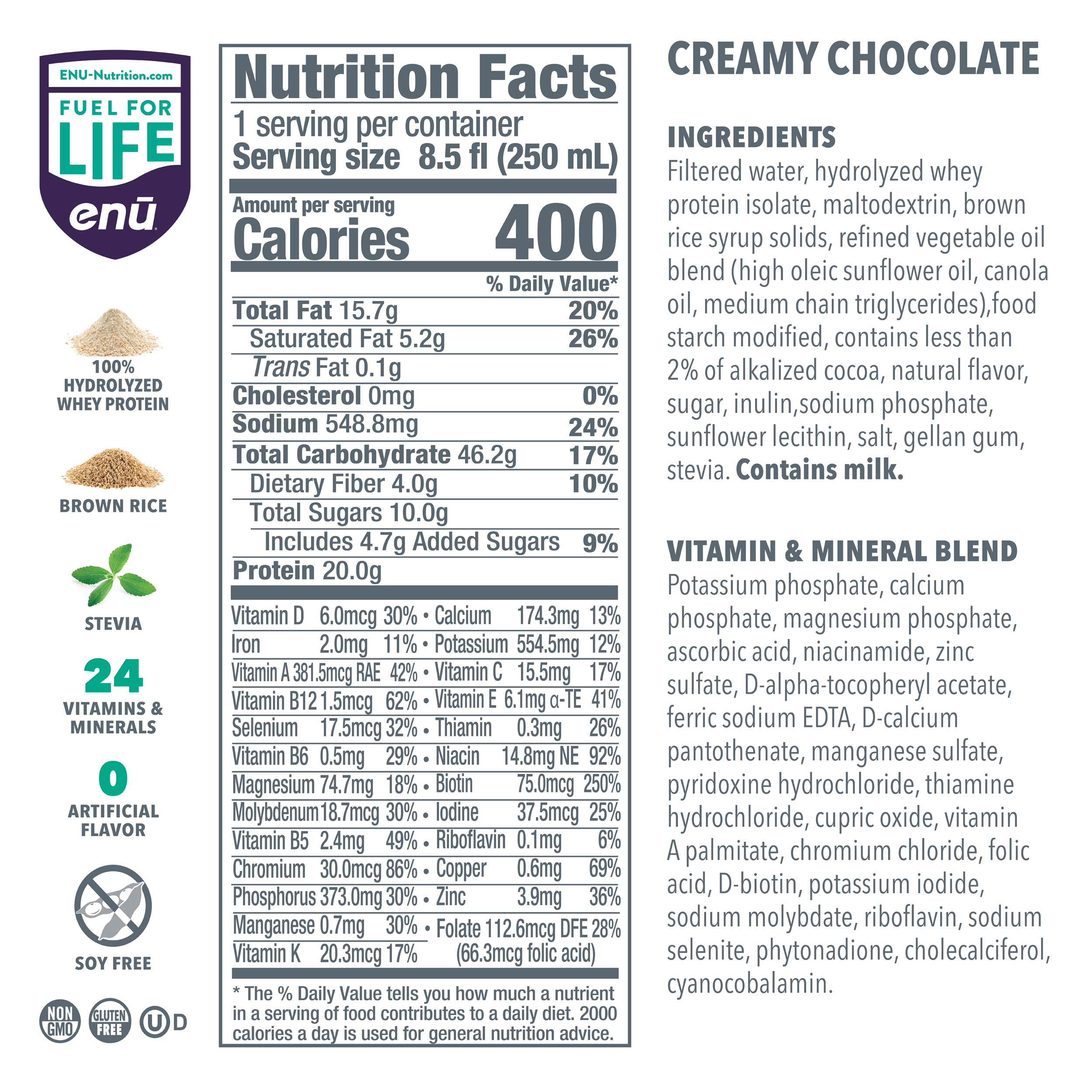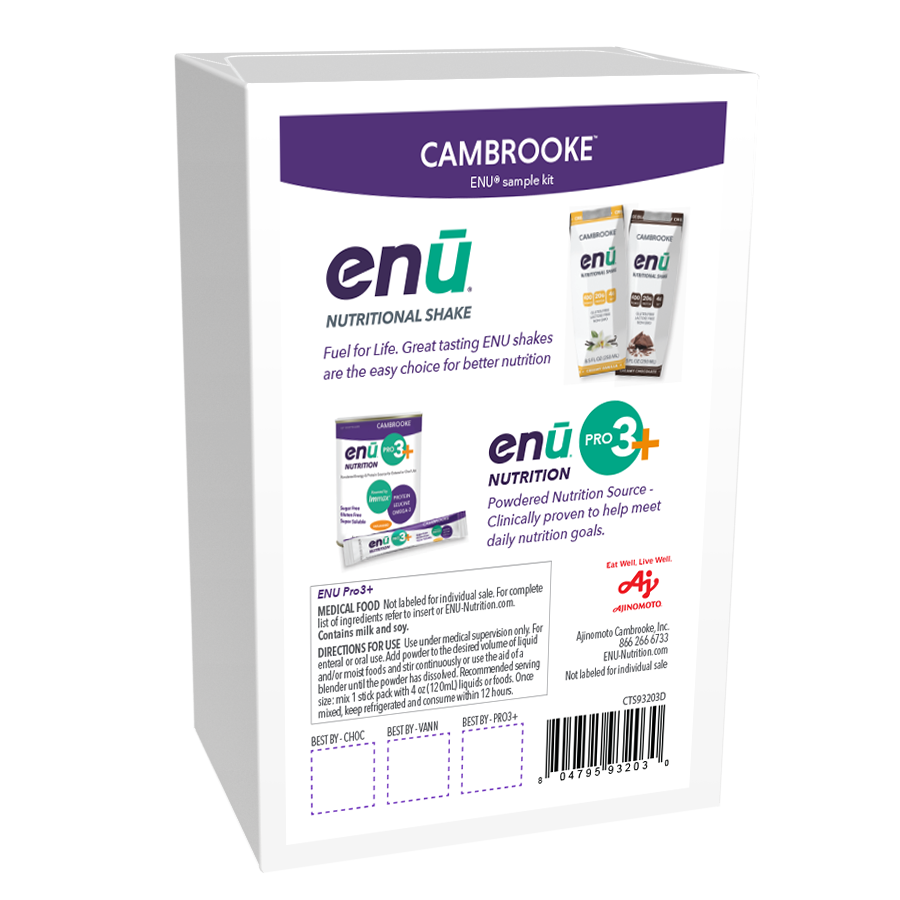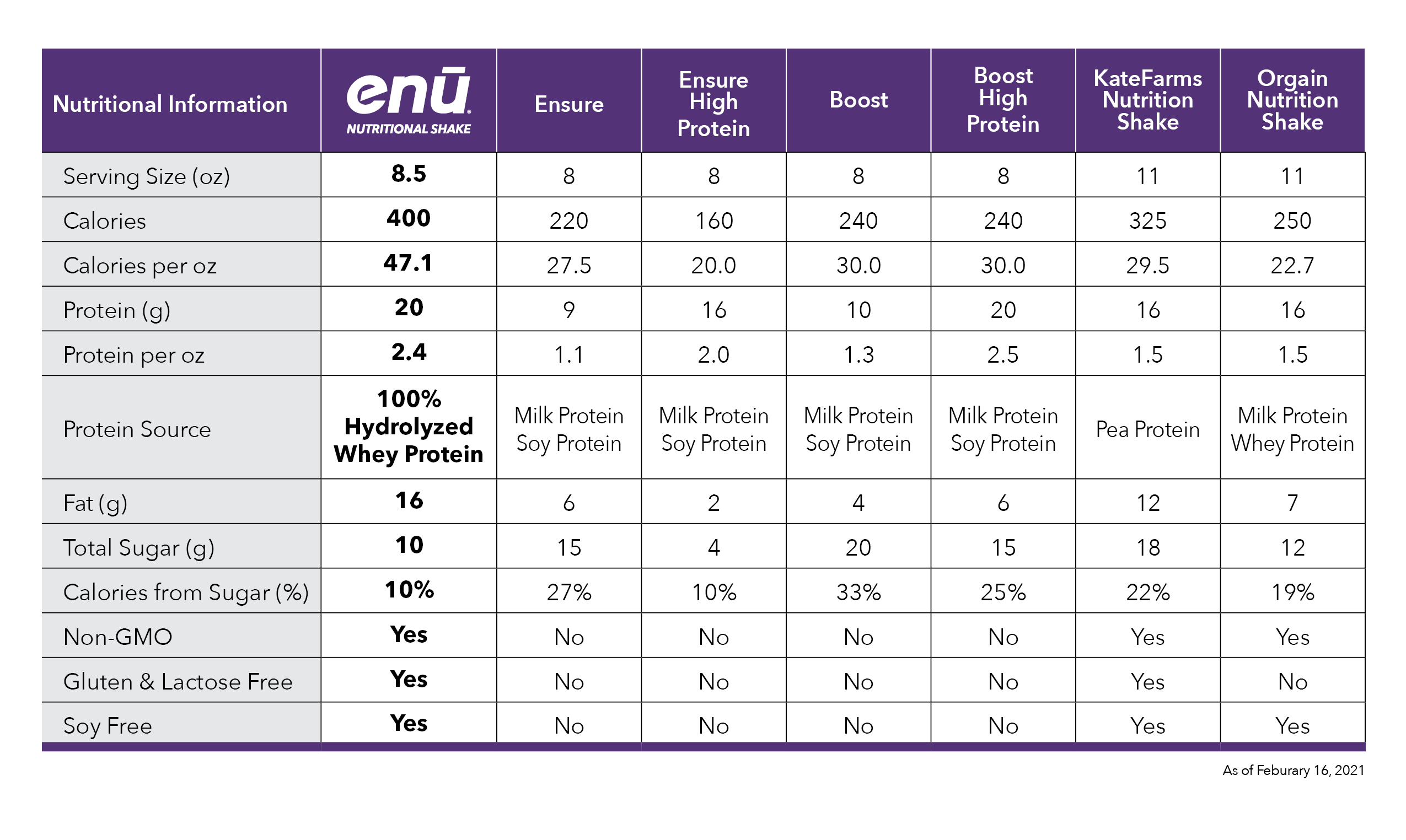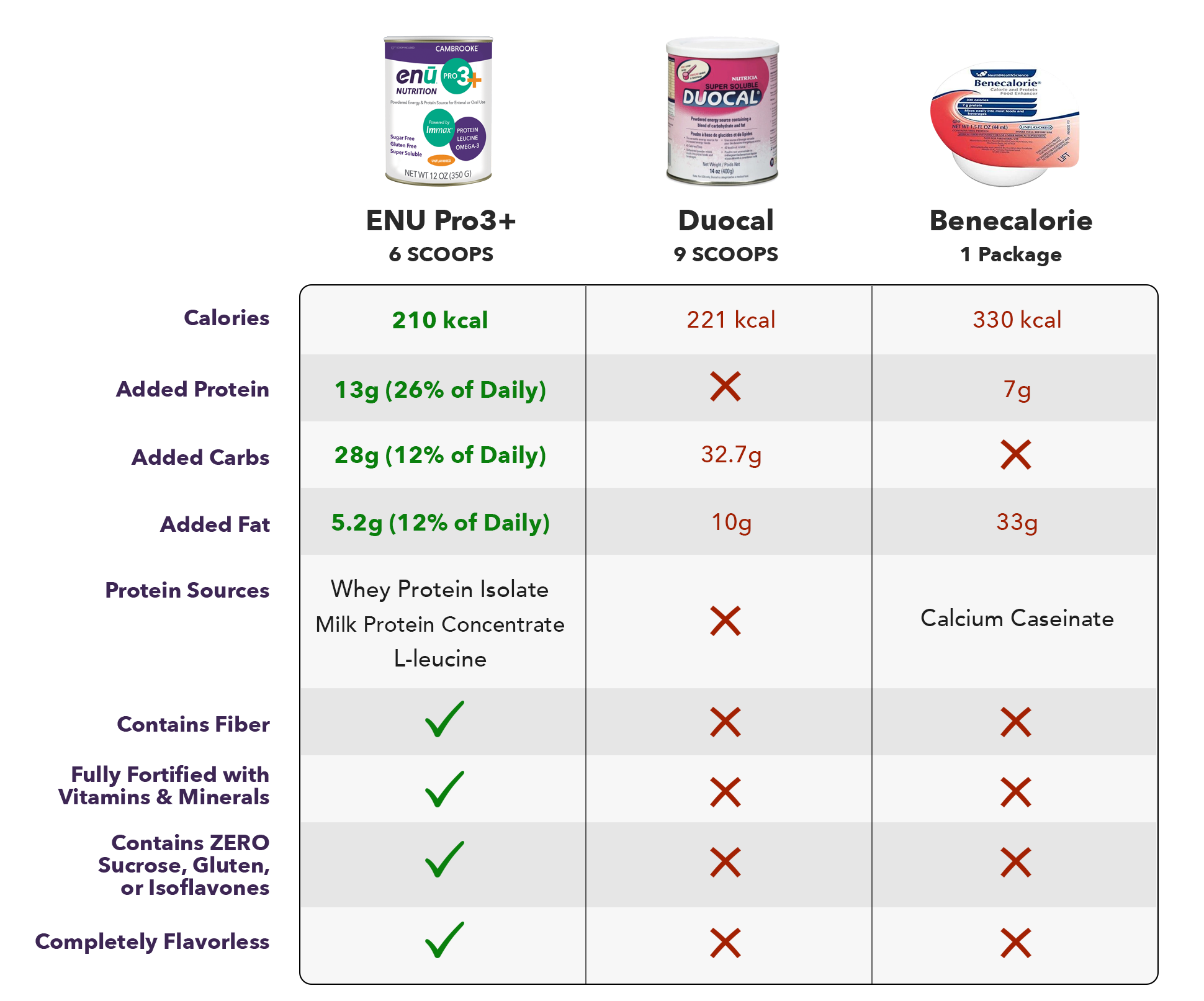
Get a FREE
ENU Intro Pack*
*Just Pay $2.00 Shipping
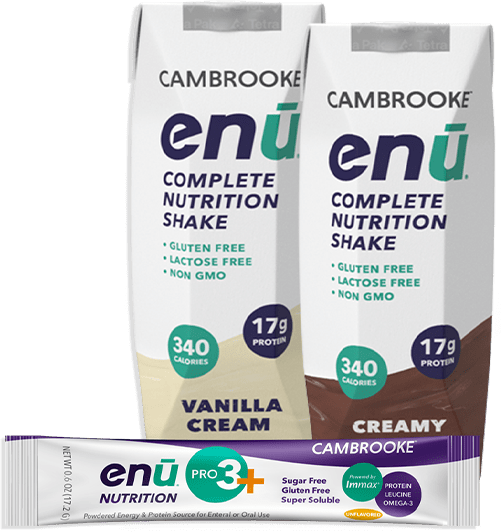
Why Do Cystic Fibrosis Patients Need a High-Calorie Diet?
There are many illnesses that affect how a person’s system handles food, but few have as significant an impact as cystic fibrosis. This disease is well-known for its effects on patients’ weight, nutrition, and respiratory functions, and the combination of these symptoms can be devastating if certain adjustments aren’t made. One of the most important things a person with cystic fibrosis should do is adapt their diet to the specific needs of their body, which generally includes maintaining a high-calorie medical nutrition support diet and ensuring that plenty of nutrients – especially fats, protein, and certain vitamins – are consumed each day. Still, if you or someone you know has cystic fibrosis, you might wonder why cystic fibrosis patients need a high-calorie diet in the first place. To find out, keep reading as the people at ENU explain.
How Cystic Fibrosis Affects the Body
Because cystic fibrosis is a genetic disorder, patients with this condition must contend with it all their lives. It’s caused by a mutation in the cystic fibrosis transmembrane conductance regulator (CFTR) gene that’s passed down from parent to child, which causes the CFTR protein to either work incorrectly or not appear at all – either way, the result is the same.
The CFTR protein is responsible for moving chloride (which comes from salt) to the outer surface of the cell, which is meant to attract water. In the cells that line the body’s mucous membranes, this water is important because it keeps the mucus thin and mobile, allowing it to convey bacteria and other contaminants out of the body. However, if the CFTR protein does not work as it’s supposed to, this water is not drawn to the body’s mucous membranes and the patient’s mucous becomes much thicker.
Thick mucus may not sound like a big problem, but in an environment as delicate as the interior of the human body, thick mucus can easily gum up the works. In the lungs, the mucus of a CF patient often traps bacteria and other contaminants that cause chronic respiratory infections; in the digestive tract, mucus blocks up the ducts of the pancreas, which limits the digestive process, inhibits the absorption of certain nutrients, and can even lead to the development of CF-related diabetes.
Why Cystic Fibrosis Patients Need Lots of Calories
In a healthy person, the pancreas is responsible for finishing up the digestive process. Food that has just left the stomach as a pulpy mixture must be further broken down into bits that are small enough for the intestines to absorb; the pancreas releases enzymes that serve this exact function. Unfortunately, this doesn’t happen in patients with CF – or at least, doesn’t happen properly – because viscous mucus blocks up the pancreas, preventing the release of enzymes and causing much of what the patient eats to simply pass right through the body (a phenomenon called malabsorption).
The consequence of this issue is that people with cystic fibrosis can only absorb a portion of the calories and nutrients they consume. When a healthy individual eats 2,000 calories’ worth of food over the course of a day, their body can use most or all of those calories, while a cystic fibrosis patient might only be able to use 1,000 or 1,200 of them. This is why so many patients with CF lose weight very easily: consuming a normal amount of food means that they’re actually running a calorie deficit.
The best way to combat this problem? Eat more calories. If a person with cystic fibrosis can only use 50% or 60% of the calories they consume, then significantly increasing their caloric intake should address the problem; if someone with cystic fibrosis eats 3,500 calories, their body might be able to use about 2,000 of them, though how many calories go to waste can vary from patient to patient. Still, it’s a generally accepted practice for CF patients to stick to high-calorie diets in an effort to maintain a healthy weight.
The Best Nutrients for a High-Calorie Cystic Fibrosis Diet
While the symptoms of cystic fibrosis affect several aspects of a patient’s diet, the biggest issue tends to be with the absorption of fats. Patients with CF almost always have considerable trouble digesting this particular macronutrient, which makes it a priority in any cystic fibrosis diet. Fats have the added benefit of being high in calories, so they can help patients pack more calories into their diets. Fats are also essential for the absorption of vitamins A, D, E, and K – the four fat-soluble vitamins.
To a lesser extent, cystic fibrosis can also alter how the body absorbs protein; patients with this condition should be sure to get enough protein every day, as it can help preserve muscle mass and is necessary for the healing process – a key consideration in those who must constantly battle infections. As much as possible, try to seek out sources of fats and protein that are relatively easy to digest: MCTs, for example, are a type of fat that’s easier to absorb than most, and it helps fight inflammation, too. Whey is a good example of a more easily digestible source of protein; look for these ingredients when planning your daily CF diet.
Nutritional Shakes for Cystic Fibrosis Patients on High-Calorie Diets
If you live with cystic fibrosis, you know how challenging it can be to get enough fats, protein, vitamins, and calories in your diet each day. When planning meals and choosing snacks gets tiring, consider a balanced nutritional shake from ENU. Our products are made from real food ingredients to provide a convenient, healthy snack at home or on the go, plus they contain a sizeable amount of heart-healthy fats, easily digestible protein, and other dietary essentials. To learn more about ENU meal replacement shakes and how they can help your high-calorie cystic fibrosis diet, visit us online or call (855) 266-6733 today.
